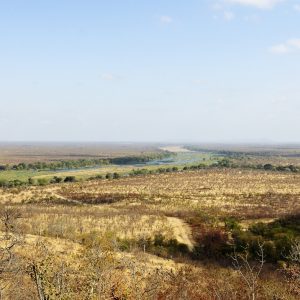The Stream, September 20: Indonesia Fires Linked To Premature Deaths
The Global Rundown
More than 100,000 people in Southeast Asia may have died early due to the burning of drained wetlands and forests in Indonesia last year, a study found. Desalinated water may be contributing to iodine-deficiencies and associated health problems, according to researchers in Israel. Canada’s new government has done little to improve its relationship with First Nations over water and land rights. U.S. presidential candidates have offered starkly different views on water in drought-hit California. Officials say melting glaciers in Greenland could boost the country’s hydropower potential. Allowing residents in the United Kingdom to choose water companies would cut household bills, but not by much.
“Unfortunately I can’t sit down and weep and say it (climate change) is bad because overall it’s good for Greenland.” — Henrik Leth, chairman of Polar Seafood and the Greenland Business Association, on the opportunities a warming climate affords the Arctic country. Hydropower is one area poised for growth as glaciers melt, according to Greenland’s environment minister. (Reuters)
By The Numbers
300 million people Estimated number who rely on desalinated drinking water supplies. A new study by researchers at the Hebrew University of Jerusalem found that the desalination process may be removing too much iodine from the water, contributing to health problems. The study’s author said the results, coupled with the growth of desalination around the world, raise a “nutritional and public health issue of a major global concern.” Science Daily
$10.43 Amount the average household would save on its annual water bill if the United Kingdom decides to allow residents to choose their water provider, according to industry regulator Ofwat. Guardian
Science, Studies, And Reports
Smog created by the burning of forests and peatlands in Indonesia last year contributed to 91,600 early deaths in the country, and an additional 8,700 deaths in Malaysia and Singapore, according to a study that will be published in the journal Environmental Research Letters. The annual fires are often set to clear land for palm oil plantations, and are exacerbated by the draining of peatland swamps. Agence France-Presse
On The Radar
Assaults on the water and land rights of Canada’s First Nations continue, despite pledges by Prime Minister Justin Trudeau to improve the government’s relationship with indigenous communities. Of particular note are the ongoing battles over energy projects — including hydropower dams and oil pipelines — where the government has done little to ensure communities have the right to veto development in their territories. Guardian
Water issues are a sharp point of difference between U.S. presidential candidates Hillary Clinton and Donald Trump, exemplified by their positions on water management in drought-hit California. Clinton has called for more water conservation and reuse, habitat restoration, the creation of a national Water Innovation Laboratory, and more federal spending on western water infrastructure. Trump has not outlined a specific policy on water, but previously indicated that more water should be sent to farmers from places like the Sacramento-San Joaquin River Delta. San Francisco Chronicle
A news correspondent for Circle of Blue based out of Hawaii. She writes The Stream, Circle of Blue’s daily digest of international water news trends. Her interests include food security, ecology and the Great Lakes.
Contact Codi Kozacek




